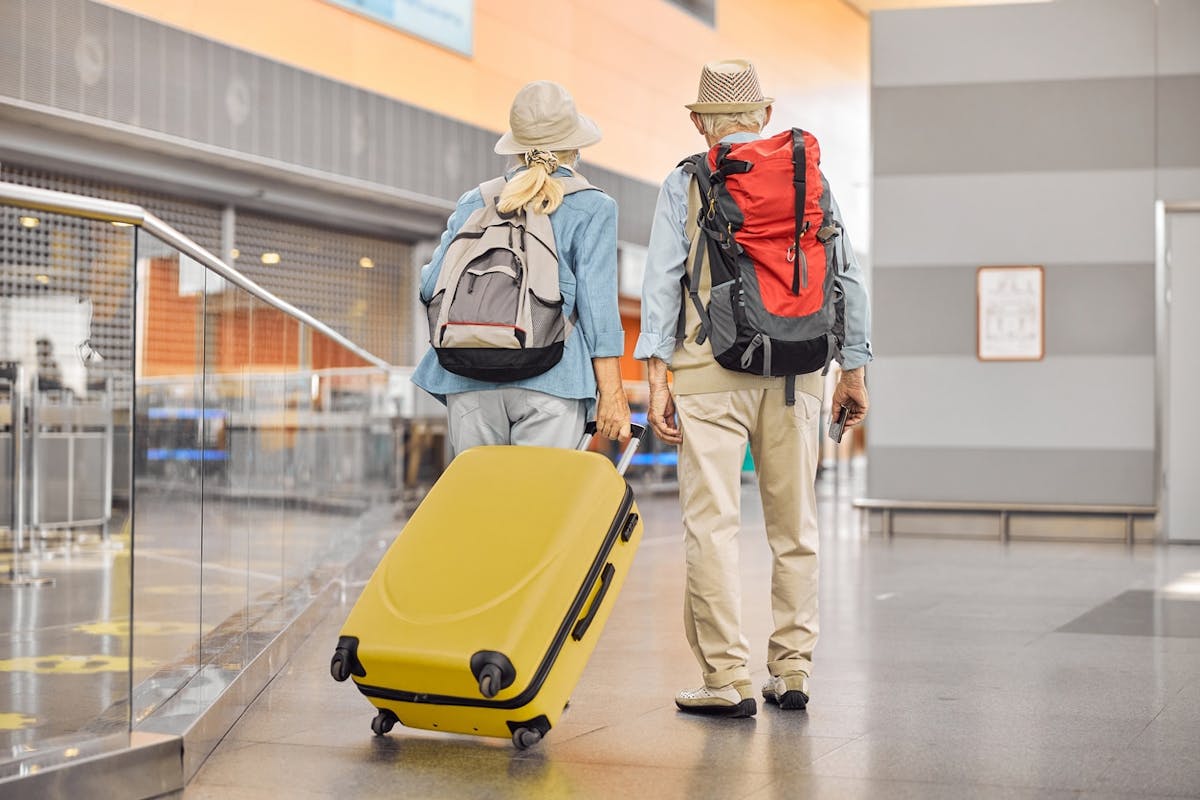Tips for Families Traveling During the Holiday Rush

Whether you are headed to a warmer destination or over the river and through the woods to visit a grandparent, traveling during the holidays can be a magical experience for families. It can be a time to bond and build memories.
But traveling as a family can also involve unique challenges, from crowded airports to traffic jams on highways. Including kids in a getaway during the busiest time of year requires extra planning, patience, and creativity. Then there are added safety struggles if you are traveling with a senior loved one who has dementia.
Whether you’re hitting the road or flying across the country, here are some tips to help families travel more smoothly during the holidays.
8 Ways to Make Seasonal Travel Easier for Families
1. Plan Ahead and Be Flexible
The earlier you start planning your trip, the better. Book flights, accommodations, and rental cars as soon as possible to avoid last-minute stress and inflated prices. Consider flying on less popular travel days (such as Christmas Day or New Year’s Eve) to bypass crowds and save money. When driving, leave extra time for unexpected delays due to traffic or weather conditions.
Flexibility is also important. Have a backup plan in case your travel plan goes sideways. For example, if your ski trip to a big-name resort in the West gets canceled, be ready with ideas for alternate destinations, such as a local ski resort or another nearby family destination. Even a hotel with an indoor water park can be fun.
2. Pack Smart and Sensibly
When you’re traveling with kids, packing efficiently is essential. Make a checklist to avoid forgetting must-have items like medications, favorite snacks, and comfort toys. If flying, pack a change of clothes for each child in your carry-on in case of spills or delays. Keep essentials, such as diapers, wipes, chargers, and snacks, within easy reach. Investing in a lightweight stroller or baby carrier can also be a lifesaver in airports or crowded places.
3. Prepare for Security and Boarding
There’s no doubt about it, airport security can be a hassle, especially when you are traveling with children or a senior with memory loss. To make it easier:
- Be sure everyone wears shoes that are easy to remove.
- Prepack electronics and liquids for quick access.
- Explain to your children ahead of time what to expect.
- Hand preprinted notecards to security that explain the senior in your group has dementia.
Weigh the pros and cons of boarding early to get the kids settled against the agitation your family member with a memory impairment might experience from sitting so long on the plane.
4. Plan Ways to Keep Kids Entertained
Long trips can lead to cranky, bored children. Pack a variety of entertainment options, such as:
- Coloring books or travel games
- Audiobooks or kid-friendly podcasts
- Tablets with downloaded movies or educational apps
- New toys or books as surprises
Consider rotating activities to keep things fresh. Don’t forget headphones and chargers for electronic devices.
5. Stick to Routines When Possible
Travel disrupts normal schedules, but maintaining parts of your routine, such as meal or nap times, can help keep kids calm. Bring familiar bedtime items like a favorite blanket or stuffed animal to make sleeping in a new environment easier. If traveling across time zones, gradually ease into the new schedule, if possible.
6. Pack Snacks and Stay Hydrated
Hunger and dehydration can make even the best-behaved child miserable. Pack a variety of healthy snacks, such as fruit, crackers, or granola bars. Bring refillable water bottles for everyone in the family. Avoid too much sugar, which can lead to hyperactivity followed by a crash. If you’re flying, keep gum or chewy snacks on hand to help kids with ear-pressure changes during takeoff and landing.
7. Prepare for the Unexpected
Even with perfect planning, things can go wrong. Flights get delayed, kids get sick, and traffic jams happen. That’s why it’s important not to schedule connecting flights or other travel times too close together. It’s also a good idea to carry basic first aid supplies in case of emergency.
Finally, try to keep a calm, positive attitude. Remember, your kids will take emotional cues from you, so showing flexibility and humor in tough situations can go a long way.
8. Make the Journey Part of the Fun
Instead of focusing solely on the destination, try to make the travel experience enjoyable. Play road trip games, listen to holiday music, or plan a fun stop along the way. Involve kids by letting them help pack their own bag or choose activities.
Invest in a Mobile Monitoring Device
One final suggestion is to consider investing in a mobile monitoring device if you have a traveling companion with memory loss or a child who tends to wander away. In the event they become separated, a quick press of a button can connect them with someone who can help. Contact Life Protect 24/7 to learn more!